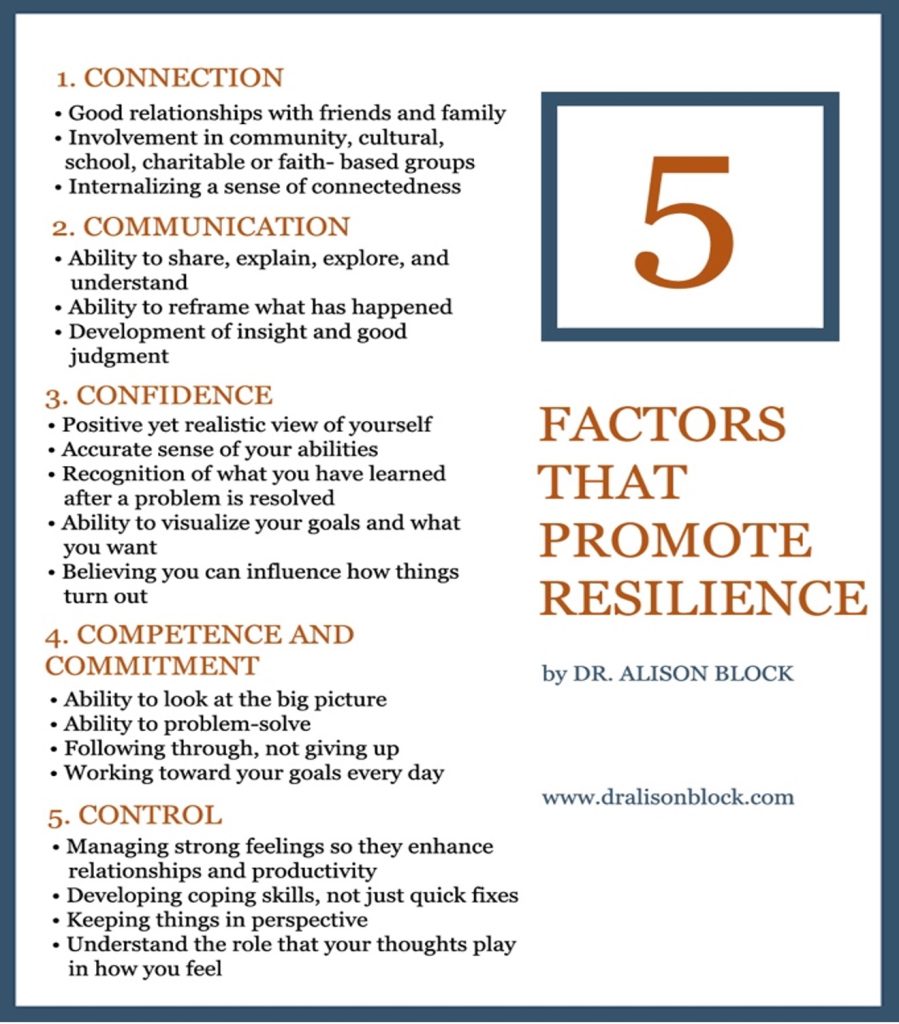
Resilience empowers people to accept and adapt to situations and move forward. While people process trauma and adversity, like COVID, in different ways, there are certain protective factors that helps build resilience by improving coping skills and adaptability. We have witnessed this, experienced this, and continue to push through this as we adapt and live in this new COVID and post COVID experience. As the world grapples with the COVID-19 pandemic, our resilience in the face of this unprecedented public-health emergency is testing and continues to test us as never before writes Caroline O’Regan, Hon. Editor HMI. RCSI Executive Development and Accredited Professional Executive Coach, AC Leader Coach and Coaching Assessor, Association of Coaching (AC).
Why do some people find it easier than others? Why are some people more resilient than others? And what, if any, is this secret golden elixir we call Resilience? How encouraging to know that Resilience is not a ‘fixed’ trait that people either have or don’t have. Importantly, resilience is an acquired skill, not a you’re-born-with-it-or-you’re-not trait, which means whether you sink or swim is actually dependent on a skill that can be taught and learned, with time. We all have it. It’s about our levels of flexibility, adaptability, and our perseverance which helps us tap into our resilience. As Jodi Picoult said, “The human capacity for burden is like bamboo — far more flexible than you’d ever believe at first glance.”
On the other side of a storm is the strength that comes from having navigated through it.
Resilience is certainly not a trampoline, where you’re down one moment and up the next. It’s more like climbing a mountain without a trail map. Being resilient doesn’t mean a person won’t experience difficulty or distress. While certain factors might make some individuals more resilient than others, resilience isn’t a personality trait that only some people possess on the contrary –
Some resilient characteristics are:
- Locus of Control: This just means that people focus on how they, as opposed to external forces, can control the outcome of events?.
- Social Support: Rely on family, friends, and colleagues when needed.
- Problem-Solving Skills:They use this to help support ways within their control to work and resolve a problem.
- Optimism: When the going gets tough, they believe in their own ability to handle it.
- Coping Skill: They find techniques to reduce stress and anxiety.
- Self-Care: They make their mental, emotional, and physical health top priorities and finally
- Self-Awareness: They are aware of their strengths and weaknesses and how to put internal resources to work.
This word ‘Resilience’ has gotten some pushback recently and lobbied as an expected norm, exceptional skill approach, and a ‘must have’ to survive and thrive. Not so. It’s more ordinary than extraordinary and a classic example is our shared reality of extraordinary related pandemic events.
The literature defines Resilience as ‘the capacity to recover from difficult events’ and ‘the process of adapting well in the face of adversity, trauma, tragedy, threats or significant sources of stress such as family and relationships problems, serious health problems or workplace financial stressors.’ As much as resilience involves bouncing back from these difficult experiences it can also involve personal growth (Ref. Allison Young MD HRB) or simply “adapting and responding positively to stress and misfortune.”
We know that the word resilience is often used on its own to represent overall adaptability and coping, but we can break this down into four categories:
- Psychological Resilience
- Emotional Resilience
- Physical Resilience and
- Community Resilience.
Psychological resilience happens when people develop coping strategies to enable them remain calm and focused during a crisis and then move on without any long-term negative consequences.
While Emotionally resilient people tap into realistic optimism, even when dealing with a crisis, and are proactive in using both internal and external resources. As a result, they are able to manage stressors as well as their emotions in a healthy, positive way.
Physical resilience refers to the body’s ability to adapt to challenges, maintain stamina and strength, and recover quickly and efficiently. Healthy lifestyle choices, building connections, making time to rest and recover, deep breathing, and engaging in enjoyable activities all play a role in building physical resilience.
Community resilience happens when groups of people respond to and recover from adverse situations and challenges to their community.
Why Is Resilience Important? We need it! Resilience is what gives people the emotional strength to cope with trauma, adversity, and hardship. We have witnessed this. Resilient people utilize their resources, strengths, and skills to overcome challenges and work through setbacks. When people lack resilience, unfortunately there is a higher risk of feeling overwhelmed or helpless, and relying on unhealthy coping strategies (such as avoidance, isolation, and self-medication). In the main, resilient people do experience stress, setbacks, and difficult emotions, but they have the capacity to tap into their strengths and seek help from support systems to overcome challenges and work through problems. Resilience empowers them to accept and adapt to a situation and move forward while focusing on self-care.
The good news is that anyone can learn and develop their resilience. Learning to be resilient doesn’t mean figuring out how to “grin and bear it” or to simply “get over it.” It’s not about learning to avoid obstacles or resisting change. Building resilience is a process by which people utilize flexibility to reframe thought patterns and learn to tap into a strengths-based approach to working through obstacles. As we move through this pandemic the comforting quote form Gregory S. Williams “On the other side of a storm is the strength that comes from having navigated through it. Raise your Sails and Begin.”
We also now know that certain protective factors can help build resilience by improving coping skills and adaptability. Like building a muscle, increasing your resilience takes time and intentionality focusing on four core components:
- Connection
- Wellness
- Healthy Thinking and
- Meaning.
These four components can help increase capacity for resilience and our ability to weather and grow.
We know now that the combination of the above and the following six factors will definitely contribute to building resilience. These include:
- Social Support – Social support can include immediate or extended family, community, friends, and organizations.
- Realistic Planning – The ability to make and carry out realistic plans helps individuals play to their strengths and focus on achievable goals.
- Self-Esteem – A positive sense of self and confidence in one’s strengths can stave off feelings of helplessness when confronted with adversity.
- Coping Skills – Coping and problem-solving skills help empower a person who has to work through adversity and overcome hardship.
- Communication Skills – Being able to communicate clearly and effectively helps people seek support, mobilize resources, and take action.
- Emotional Regulation – The capacity to manage potentially overwhelming emotions (or seek assistance to work through them) helps people maintain focus when overcoming a challenge.
In developing our resilience Dr Allison Block gives us five factors that promote resilience

It is good to know that at an individual and organisational level there are tools and techniques available to support and develop resilience, with managers and leaders continually asking “Are we nurturing and developing Resilience to support staff?” and “How adaptive and supportive are our organisations to the needs of the people caring for our patients/clients”?
We are reminded of our internal strengths by a famous quote “You have the power over your mind, not outside events, realise this and you will find strength.” – Roman Emperor Marcus Aurelius.

